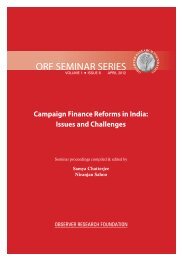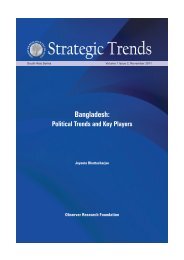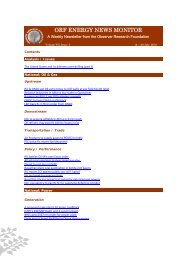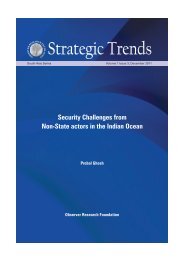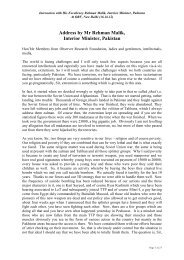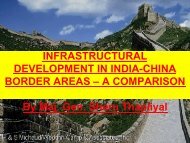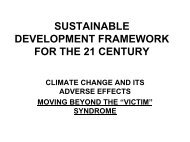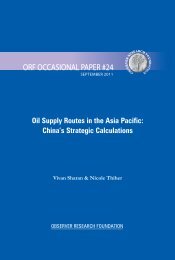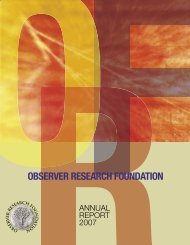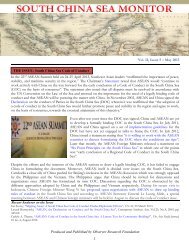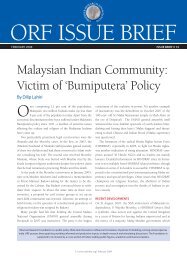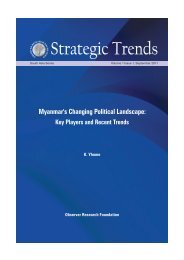Tangled Relationships - Observer Research Foundation
Tangled Relationships - Observer Research Foundation
Tangled Relationships - Observer Research Foundation
You also want an ePaper? Increase the reach of your titles
YUMPU automatically turns print PDFs into web optimized ePapers that Google loves.
ORF Occasional Paper<br />
between Japan and Korea as the East Sea. The name naturally creates great<br />
deal of consternation in Korea. It was only in 1928, when the International<br />
Hydrographic Organisation's (IHO) 'Limits of Oceans and Seas' officially<br />
christened the 'Sea of Japan', which eventually influenced other<br />
international documents. Korea believes the IHO only took into account<br />
Japanese views when deciding on the name, as Korea had lost effective<br />
control of its foreign policy during Japanese occupation.<br />
South Korea argues that "East Sea", a common name found on ancient<br />
European maps, should be used instead of or at least concurrently with Sea<br />
of Japan. Japan claims that Western countries named it the Sea of Japan<br />
prior to 1860, before the growth of Japanese influence over Korea after the<br />
1894 outbreak of the First Sino-Japanese War. In 2012 during the Monaco<br />
Conference of the IHO, South Korea mounted a diplomatic offensive to<br />
change the status quo. South Korea did derive some consolation with the<br />
Conference deciding to examine the matter in 2017.<br />
Non-nuclear Japan<br />
For the first time in 34 years, Japan's Diet revised the Atomic Energy Basic<br />
Act in June 2012 by including national security among its goals. In separate<br />
legislation, the Diet also deleted a phrase that had thus far confined the<br />
Japan Aerospace Exploration Agency's activities to “peaceful purposes”.<br />
This triggered widespread uproar in South Korea, particularly in the media.<br />
The Korea Times in an editorial said that Japan, hitherto a 'virtual nuclear<br />
power', had taken the first step towards becoming a 'real' one by enacting<br />
the legislation. Korean media further pointed out that Japan has a sufficient<br />
stockpile of weapons grade material technological prowess to quickly<br />
fabricate roughly 6,000 Hiroshima-level bombs. Korea knows that Japan<br />
was one of the last nations to sign the NPT in 1970 and only ratified it six<br />
16<br />
www.orfonline.org



